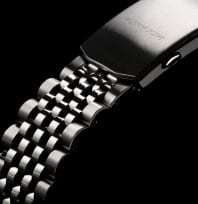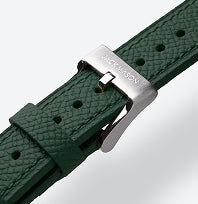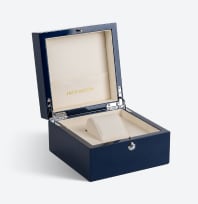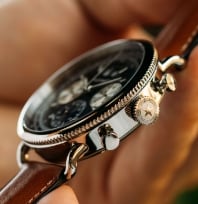Your Guide To Choosing The Watch That’s Best For You
When it comes to buying a watch, there are plenty of factors to consider that will influence your final decision. A well-chosen wristwatch is something you’ll be able to happily wear for decades, perhaps even a lifetime. This makes it well worth the time and effort you put in being intentional about your decision of which watch you buy.
One of the most important factors to take into consideration when choosing a watch is its condition. Buying a new watch is not your only option. Although most products, especially clothes, accessories, and other forms of apparel, are commonly purchased new, buying vintage used goods has become more common in the last decade.
Vintage watches are sought after for the history they carry, the intricacies and craftsmanship of many older watches, and because of the inherent appeal of older items for the sake of their aesthetic beauty and timeless style. There is certainly a case to be made for wearing a vintage watch, especially one that has sentimental value.
On the other hand, there are plenty of perks to purchasing a new watch instead. In this article, we will cover the main pros and cons of owning a vintage watch and a new watch. By the time you’ve finished reading, you will be prepared to make an informed decision on which watch is right for you.
What To Expect From A Vintage Watch
Older watches, especially those made before the latter half of the 20th century, are often powered by a different type of mechanism, or movement. Watch movements are the different types of mechanisms used to make a watch tick and keep time accurately. The primary forms of watch movement are mechanical, automatic, and quartz.
When wristwatches were first coming on the market, all of them were powered by mechanical movement. However, in the early 20th century, the first automatic watches were introduced. Both of these types of watches remained prominent for decades, and automatic watches are still commonly found on the market today.
However, with the introduction of quartz watches in the late 1960s, mechanical watches began to wane in popularity. Automatic and quartz watches require less interference from their wearers, and these watch movements are far more common now than mechanical watches.
However, the use of mechanical watch movement is one of the primary reasons why many watch enthusiasts seek and collect vintage watches. Mechanical watches are artfully made and expertly crafted. The inner workings of a mechanical watch are truly a work of art, fascinating to look at and difficult to fathom.
A mechanical watch requires manual winding by the wearer, making it slightly less convenient in comparison to more recently invented forms of watch movement. However, this has not deterred many watch lovers from opting to own and wear mechanical watches.
You can still find vintage watches powered by quartz and automatic movement. However, many of these watches will be more recently made than their mechanical counterparts. In addition, even vintage automatic and quartz watches are often more affordable than mechanical watches.
Why People Opt For Vintage Watches
A vintage watch is often a major investment due to the oftentimes collectible nature of older luxury goods. This is even more so the case when it comes to vintage mechanical watches, especially those made by renowned luxury brands.
You can easily spend thousands of dollars on a vintage watch, far more than most can justify dropping on an accessory, no matter how well-made and good-looking it is.
In addition, vintage does not always automatically equate to better, nor does it guarantee that a watch will be in worse shape than a new one. One of the best parts about owning a high-quality watch is that its value will not depreciate over time, and with proper care, it will last decades.
In many cases, time can even increase the value of a watch, leading to many watches, eventually being deemed collectors’ items. This adds an additional layer of incentive to owning a good watch and makes it far more worthwhile than opting for a mediocre one.
Ultimately, the primary reason that many watch wearers opt for a new watch over a vintage one is the more accessible price point of newer quartz and automatic watches over older mechanical ones. To spend a fraction of the money and get a new watch seems like a better call to many than making a huge investment for a pre-owned watch that was made decades before. However, many die-hard watch enthusiasts appreciate the collectibility of older watches, and in many cases, vintage watches are even passed down and inherited through generations. There are numerous circumstances in which buying a vintage watch is more viable and seems more worthwhile, but in many cases, it is not on the table on the sheer basis of financial feasibility.

What To Expect From A New Watch
If you choose to purchase a new watch, make sure not to compromise on quality. Not all watches are created equal, and many do not have the same levels of craftsmanship that were considered standard during the first decades of watchmaking history.
To make matters worse, smartwatches and digital watches have come on the scene, attempting to steal the thunder from their analog forefathers. When it comes to purchasing a new watch in 2020, you are far better off opting for a high-quality analog watch over a cheaply made digital watch or a smartwatch.
Smart and digital watches, with their bells and whistles and less traditional builds, can seem attractive at first, but neither is capable of replacing the classic look and feel of a great analog watch.
In contrast, newer analog watches that are made well can be found with the same level of quality and craftsmanship seen in watches of decades past. Automatic and quartz movements have become more common since the latter half of the 20th century, leading to a relative decrease in the production of mechanical watches, which initially were the only types of timepieces on the market.
As automatic and quartz watches have become more common, watch wearing has become much lower-maintenance overall. While vintage mechanical watches require routine manual winding by their wearers, quartz and automatic watches are much easier to maintain. The battery-powered quartz movement mechanism is especially hands-off for its wearer, requiring no manual winding.
Newer watches may not have the same sentimental value as their vintage counterparts, but as time passes, they can become meaningful heirlooms in their own right. Purchasing a new watch may not be continuing a legacy, but it certainly is starting one.
When you are looking for a surefire way to add something to your life that will benefit future generations in your family, purchasing a great watch is a perfect way to go. After your time wearing it has run its course, you can pass it on to a fitting heir, carrying on the legacy you’ve started.
Is There A Winner?
Ultimately, vintage watches will always have a unique appeal with some collectors and enthusiasts. However, like most niche interests, antique and vintage timepieces may not be as accessible or appealing to the average watch wearer as they are to their devoted fans. For most men, a new watch is a great option, and often a much more affordable one.
When looking for the best possible new watch, make sure to purchase from a watchmaker with an emphasis on quality and craftsmanship. Many watches are cheaply made and mass-produced without care for the art form of watchmaking. At Jack Mason, we deeply value the legacy started by watchmaking legends of decades past and believe that excellence is always worth the time and effort.
It is well worth it to take the time to familiarize yourself with the different styles of watches and the differences between each. Challenge yourself to get to the point where you can instantly distinguish one type of watch from another, recognize and identify complications, and understand the inner workings of each type of watch movement.
This information will prove extremely useful throughout your lifetime and leave you a cut above the average man in terms of your ability to expertly choose the best possible watch to meet your personal preferences.
Sources:
https://www.wsj.com/articles/SB10001424127887323296504578398421436671376
https://www.popularmechanics.com/technology/a14131/know-your-movements-what-ma
https://electronics.howstuffworks.com/gadgets/clocks-watches/question285.htm











